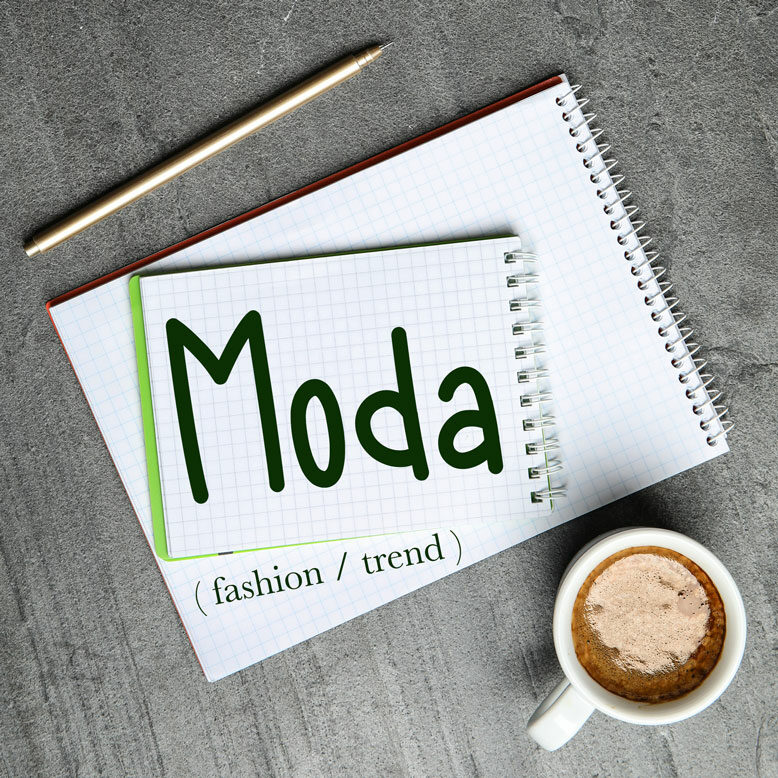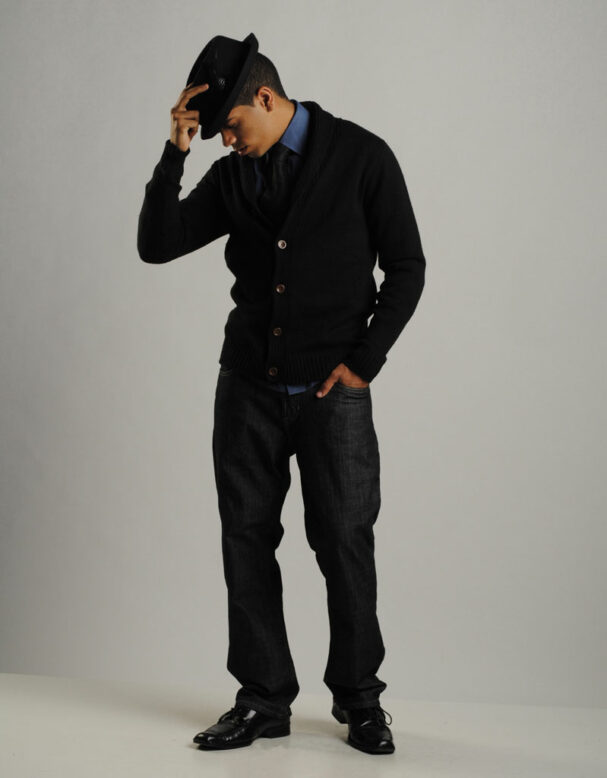The Italian word for fashion is moda. It entered the language via the French mode, which you might recognise from the expression à la mode.

Moda is a feminine noun whose plural form is mode.
la moda
the fashion
una moda
a fashion
le mode
the fashions
delle mode
(some) fashions
Here are a few useful verbs you will often see in the company of moda:
- essere di moda = to be in fashion
- andare di moda = to be the fashion
- diventare di moda = to become fashionable
- tornare di moda = to come back into fashion
- passare di moda = to go out of fashion
- lanciare una (nuova) moda = to set a (new) fashion
- seguire la moda = to follow the fashion
There are a few expressions you can use to describe things that are fashionable and trendy. Alla moda, the one-to-one equivalent of the Frenchà la mode, is more or less interchangeable with the expression di moda. If something is all’ultima moda, it is up-to-date with the latest fashion trends.
Le scarpe di pelle sono sempre alla moda / di moda.
Leather shoes are always in fashion.

If something is out of fashion, you can say that it is fuori moda or all’antica (old-fashioned).
A few common terms that contain the word moda include:
- rivista di moda = fashion magazine
- sfilata di moda = fashion show
- moda primaverile = spring fashion
- moda estiva = summer fashion
- negozio di moda = fashion shop
- alta moda = high fashion
- moda autunnale = autumn fashion
- moda invernale = winter fashion
Interestingly, the fashion industry is known simply as la moda in Italian, without any additional modifiers. If you wanted to say that you work in the fashion industry, for example, the translation would be Lavoro nella moda (lit. I work in fashion).
Did you know that…?
Italians have adopted the English word fashion into their lexicon, pronounced with an /ɛ/ instead of an /a/. It can mean fashion, in fashion and fashionable (e.g. le scarpe fashion = fashionable shoes / Sei molto fashion! = You’re very fashionable!).
Somewhat confusingly, when describing the appearance of a fashionable person, Italians prefer to use adjectives such as elegante (elegant) or chic (chic, classy).
Dario è sempre molto elegante. Non mi stupisce che lavori nella moda!
Dario is always very fashionable. I’m not surprised that he works in the fashion industry!

Finally, moda is used to describe, not just clothes and accessories, but also fads and trends. A passing fad, for example, is known as amoda passeggera in Italian.
Oggi è di moda mangiare cibi sani.
Nowadays eating healthy food is in fashion.
Heather Broster is a graduate with honours in linguistics from the University of Western Ontario. She is an aspiring polyglot, proficient in English and Italian, as well as Japanese, Welsh, and French to varying degrees of fluency. Originally from Toronto, Heather has resided in various countries, notably Italy for a period of six years. Her primary focus lies in the fields of language acquisition, education, and bilingual instruction.


